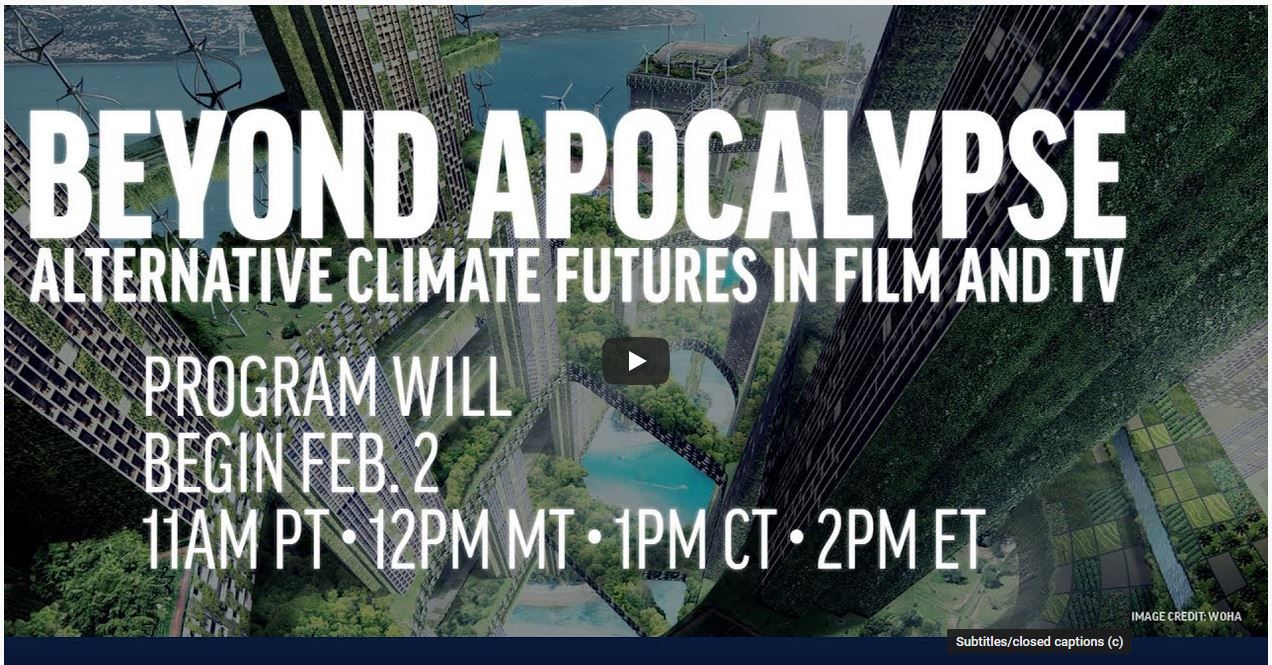The Winning Climate Story

Contests! They have become the solution that many turn to for generating good climate stories. Everyone loves a good competition, right? It can provide motivation through the allure of a big win. And it must work, because short story competitions, national book awards, and Oscars for screenplays produce tons of effort on the part of creators to win the prize. It is also great for creating buzz by vouching for the winning story’s worth, so why not have even more contests?
Here's the problem:
·The Natural Resources Defense Council (NRDC) has a contest called Rewrite the Future’s Climate Storytelling Fellowship, which focuses on screenplays and pilots for television. It’s wonderful, except there will be only three winners.
·Arizona State University offers a short story contest every few years called Everything Change. It has one winner and nine finalists. You can download free anthologies of their chosen stories from their website here.
·Grist has a contest called Imagine 2200: Climate Fiction for Future Ancestors. They choose three winners as well as nine finalists from among all the short story entries. You can read winning stories from their inaugural contest here.
·The Green Stories Project in the U.K. offers varied competitions, all free to enter, and they even have an EcoSanta short story competition! To their credit, they have a novel competition as well, but there will only be two winning manuscripts.
I'm not bashing any of these efforts. They have their place in promoting awareness of the genre, and reading the winning stories in any of these contests is valuable to gauge what might make good climate fiction (at least in the judges’ mind), so I recommend exploring them. Yet, by setting up a competition with only a few winners, you also get a huge number of losers. What do you offer them? It’s as discouraging as submitting to an agent or editor and getting rejected again and again. Does this really promote climate fiction as a genre to spend time creating for? I have my doubts. Many writers may lose once and go back to writing for a traditional genre where the market is stronger.

That said, at least the NRDC’s Rewrite the Future campaign offers something more. They have two very interesting videos that speak to climate storytelling. Their latest one deals with climate emotions when writing stories, but I was more interested in their earlier video, called Beyond the Apocalypse. This features a panel that includes, Christiana Figueres, founding partner of Global Optimism and previous Executive Secretary of the UN Framework Convention on Climate Change. She says that, when it comes to storytelling, we must move beyond the doom and gloom:
“Yes, we are up against a steep hill, but we can climb it!” She also adds, “…but we have to imagine what the future looks like because whatever we can’t imagine we cannot create.”

In this same video, screenwriter Dorothy Fortenberry, gives some great advice for how to approach climate stories. Climate change is happening now, she explains, and it intersects our relationship to our world and each other, not just in disasters, but in how the seasons change or a pond no longer freezes over so we can't skate on it with our grandchildren. She believes the reason we have not seen climate stories flourish before is that:
“We avoided it because we only saw it as giant and scary and monstrous—that was what climate change was—but my hope is, as we see it as smaller and human, we can recognize that it impacts every single story. Every television show right now has the potential to be a climate change show.”
This is the important work of all climate fiction writers, to bring both the impacts and the solutions into a reader’s everyday world.
So, join me in the garden to support all those climate writers that may not win first prize but still have compelling stories to tell. As we build the audience for climate fiction and support writers in their efforts to craft great climate stories, we will imagine the future we can create.
Member discussion